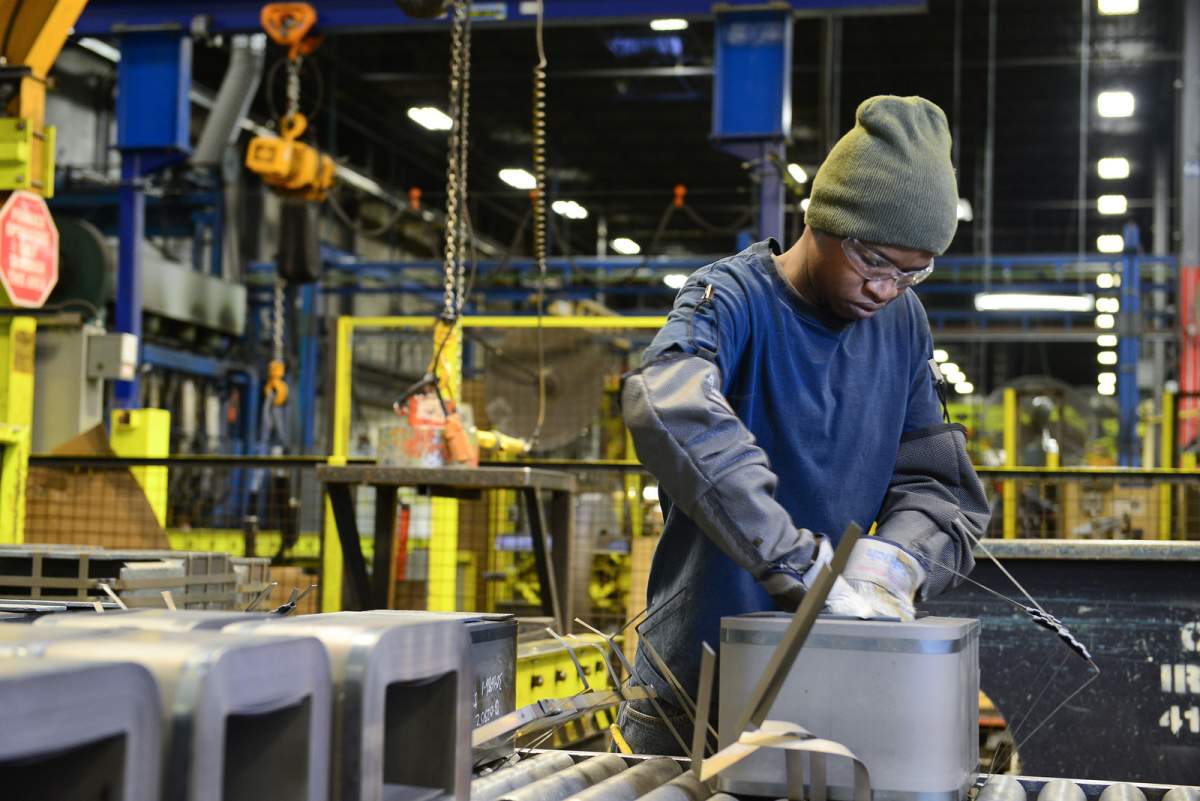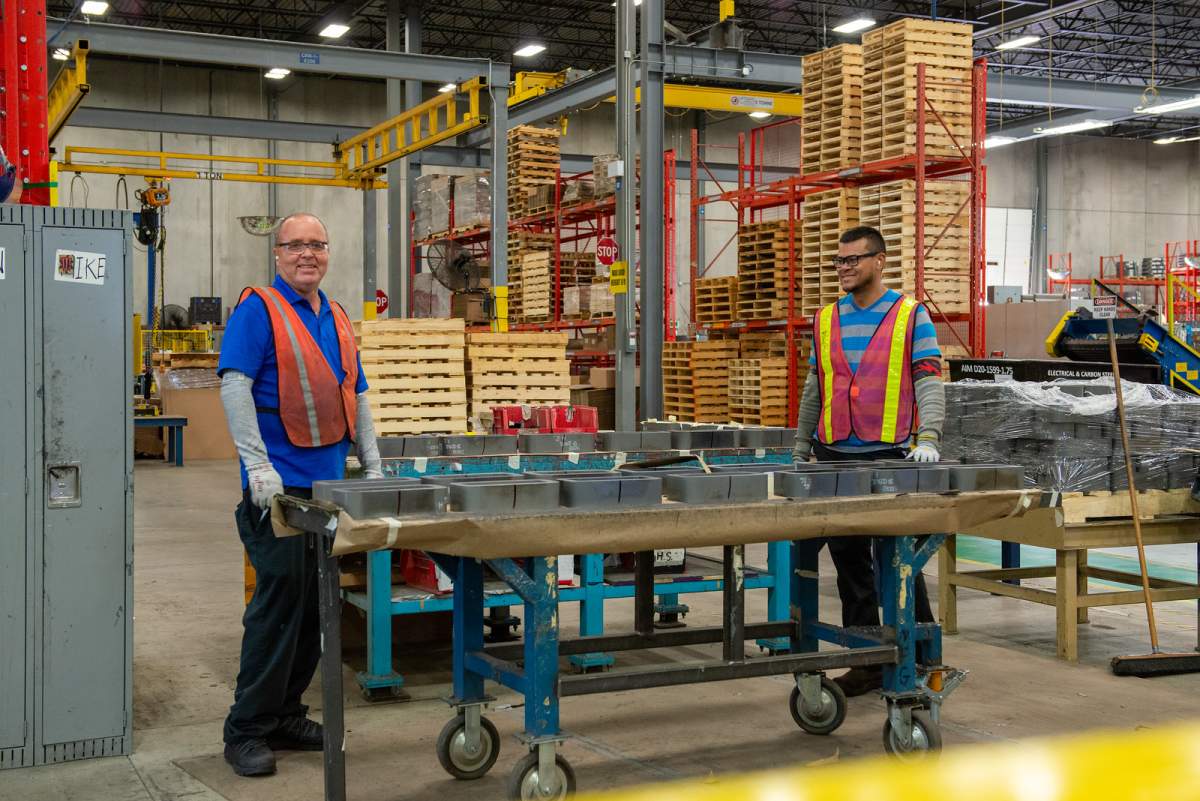The challenges of Canada’s manufacturing industry have been amplified during the pandemic due to raw material shortages, interrupted workflow and lower outputs.

Yet JFE Shoji Power Canada, an electrical steel materials company based in Burlington, Ont., not only thrived over the past couple of years with steady growth, it’s now aiming to drive a new era of sustainable energy.
JFE Shoji Power has hired nearly 200 people and continues to expand into new markets heading into 2023, when the company will celebrate its 50th anniversary. It’s also opening its doors to the public with an open house on November 3. This is more than an open house. The company is aiming to provide a “blue carpet experience”.
“What our company does is unique and provides incredible security. The electrification of society and sustainability efforts for our environment are global priorities,” says Kate Selbie, director of Organizational Development and HR with the company. “We definitely want to attract job-seekers, but beyond that, we want our community members to know we’re here and to understand how we contribute locally to the community but also to the provincial and the national economy.”
In partnership with JFE Shoji Power Canada, we look at how the electrical steel company continues to incentivize its employees while paving the way in sustainable electrical energy and growth in the hybrid and electric vehicle markets.
READ MORE: More electric vehicles qualify for rebates as Ottawa expands program
A bright future
“Coming out of a pandemic has been a significant challenge for our organization,” says Ron Harper, president and CEO. “The demand in our market for electrical energy products, specifically going into the transmission and distribution systems, is extraordinarily high as the world shifts to more electrification, and more renewable energy sources. This is being driven harder by the demand for more electricity for future needs for the transportation system, trucks, cars, etc.”

Get breaking National news
JFE Shoji Power’s mandate, Harper adds, is to provide a steady and efficient supply of electrical energy by making steel products for electrical applications. As the demand and uses of electrical energy increase, the company’s goal is to modernize the electrical supply infrastructure and find solutions to quickly and effectively transmit that energy — especially as society shifts to rely less on carbon-producing fuel.
After the pandemic intensified the industry’s supply chain challenges and labour shortages, Harper says the company pivoted to continue to meet the needs of its clients while also continuing to meet the demands of the market through investments in people and equipment.
“Building the electrical infrastructure, making it more efficient, strengthening it and bringing it to a state of renewal is critical,” he adds. “Rebuilding the grid is an enormous task, and the demand is extremely high for the products we’re in.”
READ MORE: Wait times growing for Canadians wanting to purchase electric vehicles
Incentivizing employees
To meet that demand for its products and continue growing in a rapidly changing industry, Harper and Selbie say JFE Shoji Power places enormous emphasis on its employees.
The company has implemented perks like gas cards or transit passes for employees who commute and overtime sweepstakes with monthly prizes for anyone who takes on at least one extra shift.
“We’ve never had to reduce our workforce, which is very unusual in the manufacturing industry,” Selbie says. “If anything, we’ve gone in the other direction and added these incentives. We’re talking about long-term sustainability. We’re looking at how we can expand the electrical network and how we can be a critical component of that. There are lots of things that are unique about manufacturing in this sector and this company specifically.”
As an employee, Alyson Church appreciates that sustainability — especially after the pandemic. Back in 2020, she was in the hospitality industry, in her forties and looking for a change. She heard that JFE Shoji Power was hiring from a friend and went in for an interview. Despite no previous experience in the industry, she got the job and is now a machine operator.
“There’s paid training; they give you everything you need,” she says. “I had no idea what I was doing at the beginning, and I was physically taught how to manage the programming and the computer machine — all the little details. I had lots of time to learn and I’m still developing my skills every day.”
Church says the company feels more like a community, with a team that’s constantly considering employees’ well-being and mental health. She cites lunchtime yoga sessions, seminar offerings, safety sessions and overall engagement as just some examples. “The people and culture team are fantastic,” she says. “They always have ideas and they’re always doing things to engage us and take care of us.”
“Some of these positions, of course there is some educational or experience requirements,” Selbie adds. “But that varies across the board. We offer co-ops in our engineering division, co-ops in our HR teams and paths. So really, no experience required — we have people from all walks of life.”
For more information, visit the JFE Shoji Power website or check out their Blue Carpet Experience open house at their Burlington plant on November 3 from 2 to 8 p.m.



